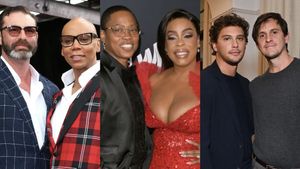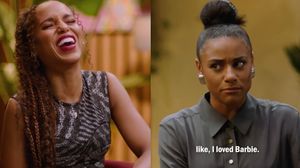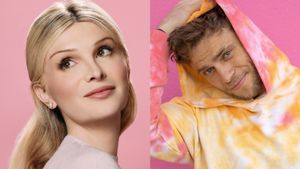 When I first moved to L.A. in the early 2000s, I was a twink with the world at my feet. Naive me, though, didn't know the powers at my disposal. Working as a receptionist at a cable television network, I was happy for a steady paycheck and free Diet Cokes. But the network's young assistants would lean up on the reception desk like a cavalcade of Lucys to my Schroeder and drop hints about taking advantage of my situation. See, a wealthy businessman in New York, long rumored to not just be gay but to have a serious penchant for the young and nubile, owned this network. "You should go up and replace the pencil cups while [Mr. Mogul] is in town," they'd say. (He loved perfect, sharp pencils -- telling.) "He'll invite you to one of his parties in the Hills. It wouldn't hurt if you dropped a pencil and picked it up."
When I first moved to L.A. in the early 2000s, I was a twink with the world at my feet. Naive me, though, didn't know the powers at my disposal. Working as a receptionist at a cable television network, I was happy for a steady paycheck and free Diet Cokes. But the network's young assistants would lean up on the reception desk like a cavalcade of Lucys to my Schroeder and drop hints about taking advantage of my situation. See, a wealthy businessman in New York, long rumored to not just be gay but to have a serious penchant for the young and nubile, owned this network. "You should go up and replace the pencil cups while [Mr. Mogul] is in town," they'd say. (He loved perfect, sharp pencils -- telling.) "He'll invite you to one of his parties in the Hills. It wouldn't hurt if you dropped a pencil and picked it up."
I soon got a job at a small PR firm and missed my chance to be used up and tossed aside. Luckily, I came to L.A. with a college degree and a sprinkling of morals, so I didn't fall prey to what so many young gay men do -- not just in Los Angeles, but New York, Miami, and London, or any place where the media and fashion industries proliferate and operate under very specific, immoral rules, where youth and beauty can be traded temporarily for money and power. Here in L.A., everyone is talking about the Bryan Singer allegations, in which a man accuses the X-Men director of drugging and sexually abusing him when he was an underage teen in the late '90s. There is certainly a difference between pedophilia, which Singer is accused of, and the exploits of my media mogul, who, like the rest of us, prefer our paramours to be of age. Yet, while there is a gulf the size of the Marianas Trench between allegedly raping boys and exploiting those just able to vote, the latter is still vile, and sadly, too common among powerful gay men.
Singer issued a statement on Thursday, according to Variety, promising that "the allegations against me are outrageous, vicious and completely false." He predicts, "When this situation is over, the facts will show this to be the sick twisted shakedown it is." No matter the veracity of the Singer accusations, they continue to reverberate in the press, in part because almost everyone who works in media in L.A. (and many in New York) have heard of or been invited to a party like the ones Michael Egan, Singer's accuser, describes in his lawsuit against the director. Months after I started at The Advocate, nearly a decade ago, I heard snickers about gay and closeted Hollywood glitterati throwing elaborate bashes at their mansions where barely legal young men -- many of whom came here on a Greyhound seeking fame and fortune -- were invited and plied with drugs. Many were promised their big break in exchange for their bodies, and of course, those star-making roles almost never panned out. The seasoned editors above me were disgusted with the behavior, but at that point, it was mostly accepted as part of Hollywood.
There's also no consensus, even now, that what these older men are doing is wrong. Many comments on the Egan story are variations of the following: "These twinks know what they're getting into." "They're all using each other." "This is how Hollywood works." There's a distinct lack of compassion for these young men who bounce in the orbits of powerful gays. Unlike the depictions of trust fund babies in Girls or wealthy Orange County transplants on The Hills, most people, like myself, come to big cities with a dream in their head and two cents in their pocket. The gay men taking advantage of this scenario wave jobs and opportunities over their heads like a gilded carrot. It's not a new story: Hollywood has been eating up and spitting out the beautiful and unconnected for over a century. What remains shocking to me is that so many gay men, a group I've long considered superior in empathy and morality to their straight brothers, are complicit in this behavior.
When I began to accept my gay identity as a teenager, one of the few bright spots to cling to was the realization I didn't have to be a man like the ones depicted in straight culture. No chest puffing, pretending to like baseball, or directing loathsome speech or action toward women. I can be attracted to men and sleep with them, I thought, but the sex could be rewarding and meaningful, not quick, filthy, and anonymous. As a 17-year-old, I fantasized about cuddling with my male best friend, not banging the football team.
Sexual tastes are certainly different, and I don't begrudge anyone who wants to screw a different person every night. But the Hollywood stories I've heard and experienced living in L.A. for nearly 14 years go way beyond promiscuous appetites. There's the constant tale of a young guy getting tossed out like a used condom after whichever actor or writer or fashion designer had their fill of them. Before I moved here, I connected the bloodthirsty hunt for sexual conquests with straight men, not gay. I simply thought we were better than this.
I'm now aware that many gay men are as much a victim of their biology as straight men, beholden to testosterone like it's the elixir of life. But even after all the accusations, all the friends' experiences, all the nights working at the Abbey when I was 24, I still find myself struggling to wrap my head around the fact that a culture of gay men preys on the young and resourceless, and that we, oppressed in so many ways, can act as oppressers, and of our own kind. In some ways, I'm just as naive now as I was then.
NEAL BROVERMAN is a columnist for The Advocate and the editor in chief of Out Traveler. Follow him on Twitter @nbroverman.
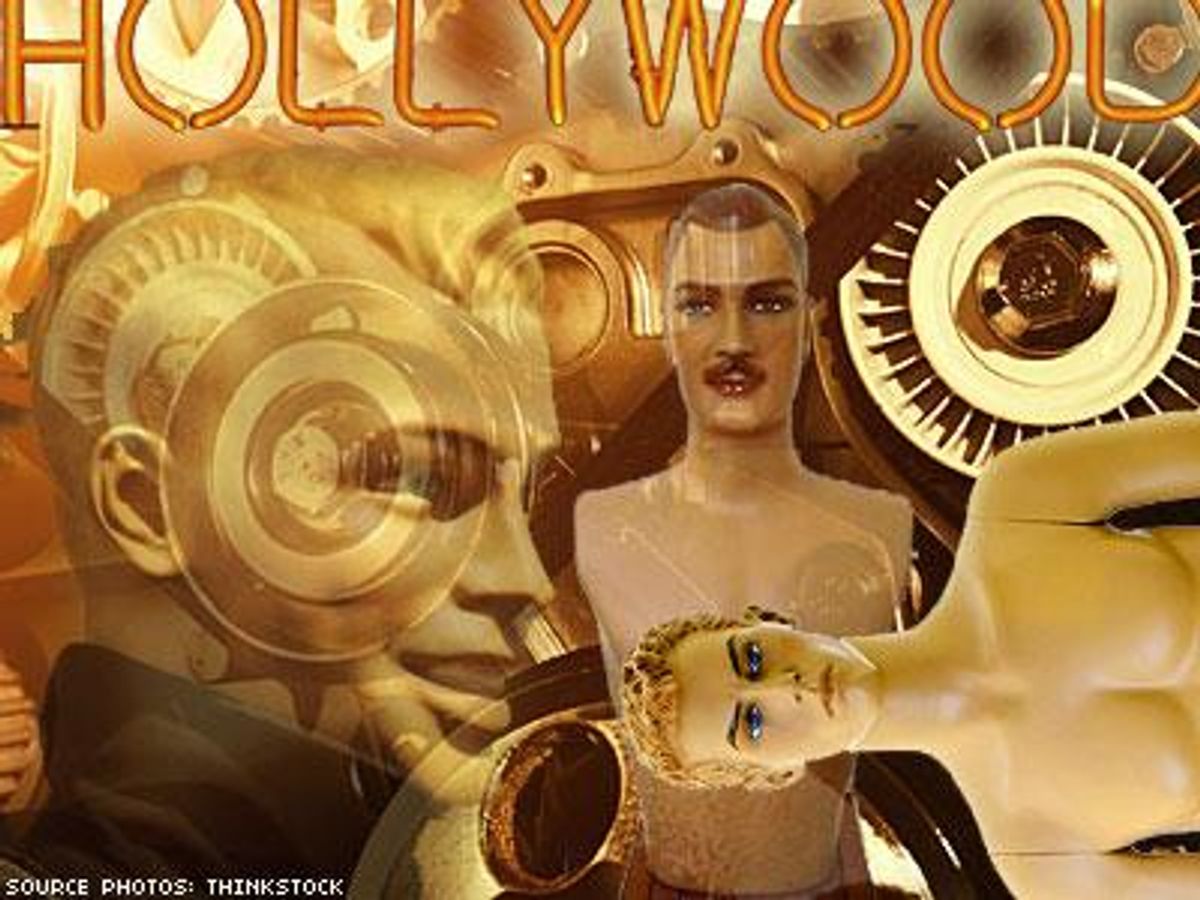

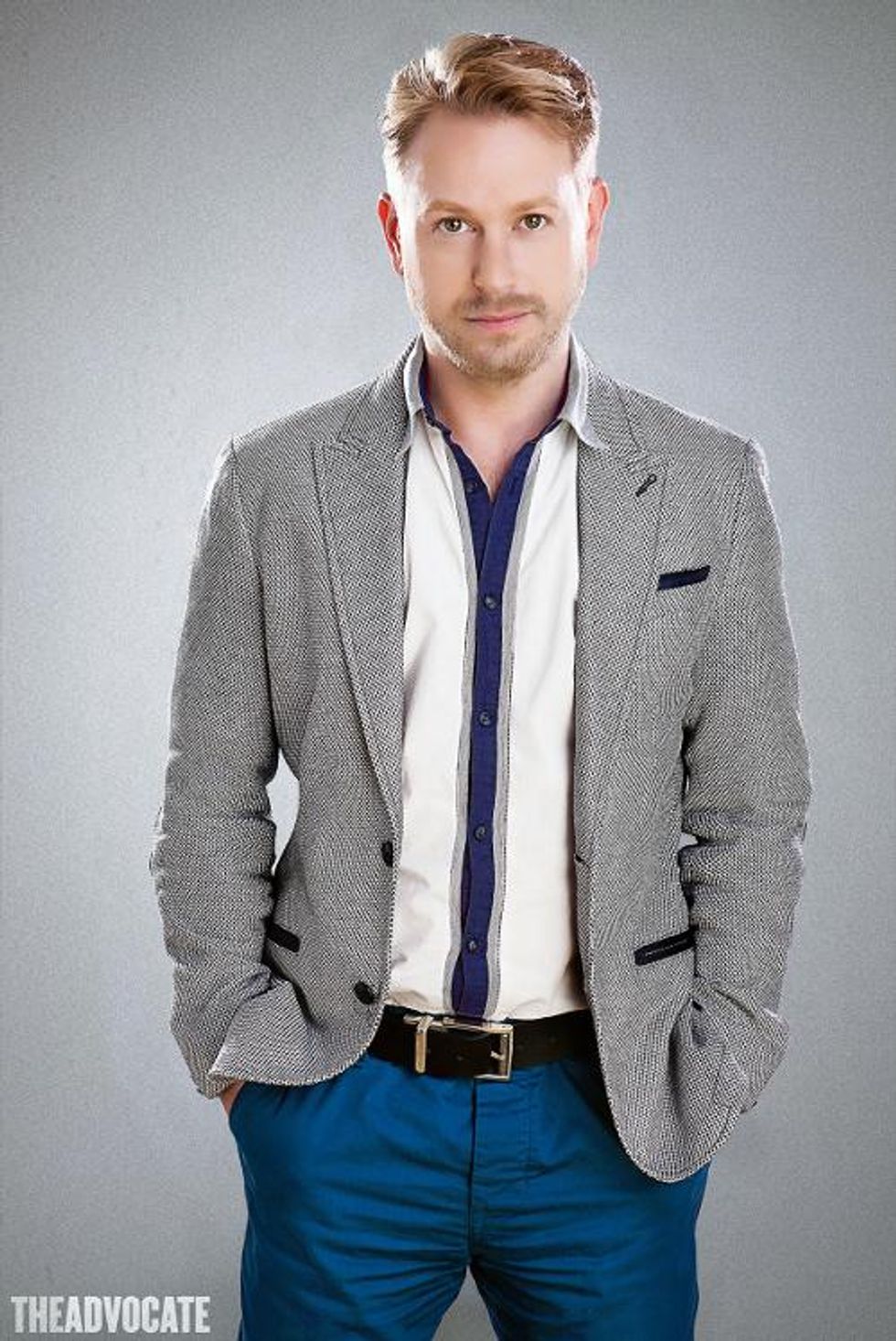 When I first moved to L.A. in the early 2000s, I was a twink with the world at my feet. Naive me, though, didn't know the powers at my disposal. Working as a receptionist at a cable television network, I was happy for a steady paycheck and free Diet Cokes. But the network's young assistants would lean up on the reception desk like a cavalcade of Lucys to my Schroeder and drop hints about taking advantage of my situation. See, a wealthy businessman in New York, long rumored to not just be gay but to have a serious penchant for the young and nubile, owned this network. "You should go up and replace the pencil cups while [Mr. Mogul] is in town," they'd say. (He loved perfect, sharp pencils -- telling.) "He'll invite you to one of his parties in the Hills. It wouldn't hurt if you dropped a pencil and picked it up."
When I first moved to L.A. in the early 2000s, I was a twink with the world at my feet. Naive me, though, didn't know the powers at my disposal. Working as a receptionist at a cable television network, I was happy for a steady paycheck and free Diet Cokes. But the network's young assistants would lean up on the reception desk like a cavalcade of Lucys to my Schroeder and drop hints about taking advantage of my situation. See, a wealthy businessman in New York, long rumored to not just be gay but to have a serious penchant for the young and nubile, owned this network. "You should go up and replace the pencil cups while [Mr. Mogul] is in town," they'd say. (He loved perfect, sharp pencils -- telling.) "He'll invite you to one of his parties in the Hills. It wouldn't hurt if you dropped a pencil and picked it up."

































